Case Studies
LUSAIL VISITOR CENTRE
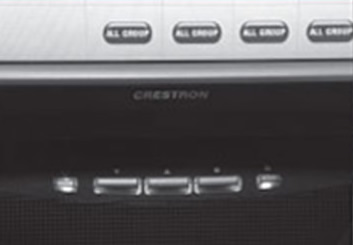
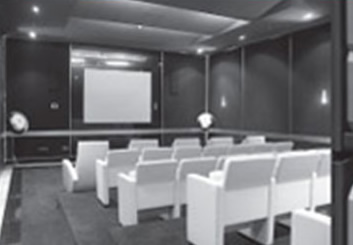
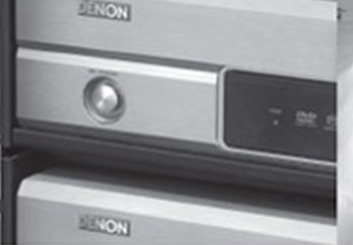
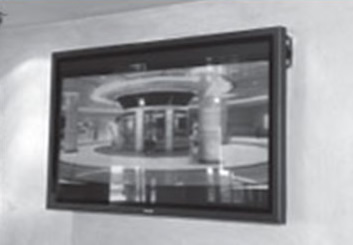
A Techno Q AUDI VISUAL Solution
In the burgeoning heart of Qatar, nested within the cosmopolitan area of West Bay in Doha, stood the emergent prospect of luxury and lifestyle—Lusail. Confronted with the ambition to reflect the exceptional character and opulence of the Lusail project, Techno Q was tasked with the comprehensive design and installation of a state-of-the-art Audiovisual (AV) and Public Address system at the Lusail Visitor Centre.
Industry: Corporate
Award Date: June 2006
Completion Date: November 2006
Role in Contract: Subcontractor
Client: Aroon
Location: West Bay, Doha
Techno Q Project Manager: Madhu Puttur
The primary goal was to implement an AV system that would impeccably depict the grandeur and innovative spirit of Lusail—mirroring the city’s lavish lifestyle and soaring ambitions. Another crucial objective was to ensure seamless communication through a robust public address system, critical for security and visitor engagement.
Challenge 1: Immersive Visual Experience Requirements
Lusail required a captivating visual solution to engage visitors and offer them a glimpse into the future of the city.
Solution:
Techno Q meticulously selected and installed sixty-four Panasonic 50’’ plasma TVs, complemented by a flexible multi-media control system. Four expansive 84’’ video walls were strategically located for maximal impact in areas like the VIP lounge and the lobby. These installations allowed for a visually immersive experience that could adapt to various content needs simultaneously, delivering a comprehensive showcase of the city’s vision.
Challenge 2: Versatile Source Integration
To cater to diverse displaying needs, a system capable of handling multiple video sources was necessary.
Solution:
A cutting-edge control system was developed to seamlessly switch between seventeen different video sources which included DVD players, satellite TV, and digital data files. This ensured that a variety of multimedia content could be effortlessly showcased to visitors.
Challenge 3: Ensuring Effective Communication
An efficient public address system was required to enable Lusail’s staff to communicate announcements to visitors easily, enhancing both visitor experience and security.
Solution:
A modern public-address system was installed, delivering crystal-clear audio throughout the facility. This system guaranteed that staff could easily make announcements, thus maintaining a high standard of security and visitor services.
Challenge 4: High-profile Event Hosting Capability
The centre needed a professional AV theatre for high-value interactions like press conferences and sales presentations.
Solution:
A thirty-seat AV theatre, equipped with Dolby Surround sound and a Panasonic Projector, was conceptualized and furnished. The theatre adhered to the highest standards of AV experience, lending itself well to host esteemed gatherings and events.
- Display Screens: Panasonic Plasma Displays, Orion Video Wall
- Projection System: Motorized Projection Screen by Draper, Panasonic Projector
- Media Devices: CD/DVD Player by Denon
- Audio System: Ceiling Speakers by JBL
- Control System: Crestron
- Switching Equipment: Matrix Switcher by Extron
- Lighting Control: Lutron
The Lusail Visitor Centre became a beacon of innovation and luxury, boasting an AV setup that not only aligned with its high-end ethos but also facilitated a dynamic and engaging visitor experience. The versatility built into the systems provided the Centre with tools to forecast a city of tomorrow, amplifying its charm and futuristic appeal to all its visitors.
The partnership of Techno Q with Lusail presented a successful interplay between AV technology and grand architectural vision, delivering an outstanding project that exceeded client expectations. By harnessing advanced AV solutions, the Lusail Visitor Centre established itself as a hallmark of technological innovation, setting a benchmark for visitor engagement in the region.
Georgetown University School of Foreign Service in Qatar
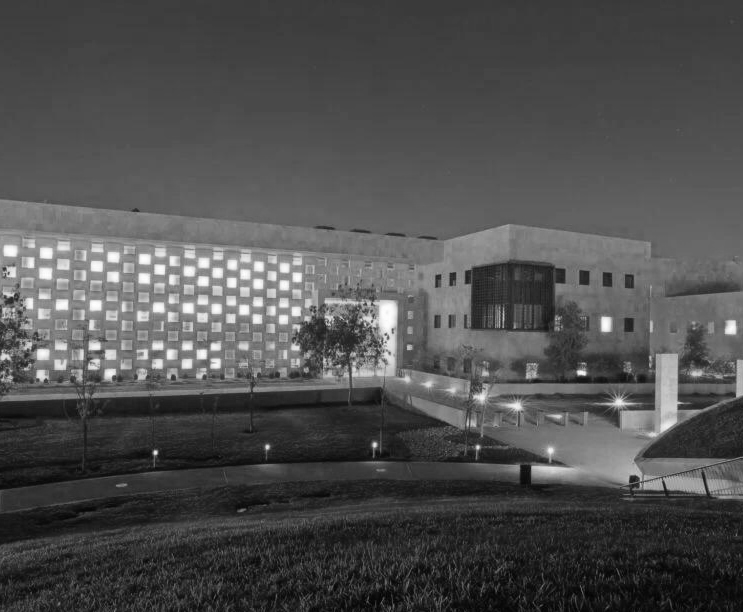
Fostering Global Engagement through Advanced AUDIOVISUAL Technology
The Georgetown University School of Foreign Service in Qatar (GU-Q) aimed to bridge the geographical divide between its Middle East campus and the main Walsh School of Foreign Service in Washington DC. With intentions of providing an immersive and interconnected learning environment, the institution sought to leverage advanced audiovisual (AV) technology to create a “Global Classroom.”
GEORGETOWN UNIVERSITY sought to:
- Enable seamless, real-time video conferencing between Doha and Washington DC campuses.
- Enhance communication and interaction among students, faculty, and peers across two different continents.
- Offer a clutter-free technology experience that minimizes distractions.
- Provide a solution that allows for eye contact and realistic audiovisual interaction, similar to an in-person experience.
Creating a cohesive educational experience for students and faculty spread across the globe required overcoming significant technical and logistical challenges:
- Ensuring high-quality, reliable video and audio transmission that can support interactive participation simultaneously from two locations.
- Integrating technology into the learning environment in a way that felt natural and unobtrusive.
- Establishing a system robust enough for frequent use but intuitive enough for one-touch operation.
The solution implemented by the GU-Q was centered around the Polycom RealPresence Experience High Definition (RPX HD) technology:
- AV System: Comprised of RPX HD, offering vivid, lifelike video conferencing capabilities.
- Immersive Technology: The sophisticated setup was designed to hide cameras, microphones, and speakers from sight to avoid distractions.
- Panoramic Environment: The unique dual-lens camera system blends images to create a panoramic display, enriching the sense of presence.
- Audio Clarity: Strategically placed microphones ensure that audio is clear and natural, simulating an ‘across-the-table’ conversation.
The project received its award in September 2007 and saw completion in January 2008. Techno Q served as the contractor with Abdula Alansari taking the lead as the project manager.
- Location: The “Global Classroom” was established within Education City, Doha.
- Role in Contract: Techno Q executed on all aspects of the AV installation and integration as the primary contractor.
- Client: The system was installed at the GU-Q on behalf of the Georgetown University School of Foreign Service – Qatar.
The introduction of Polycom’s immersive AV technology has significantly impacted Georgetown University’s cross-continental education approach:
- The Global Classroom has enabled fluid and dynamic interactions between the two learning communities.
- Students and faculty can conduct discussions, participate in joint classes, and engage in collaborative projects as if they were in the same room.
- Technology has proven central to the success of a truly global educational curriculum.
By effectively implementing Polycom’s RPX HD video conferencing technology, GU-Q has not only bridged the distance between its campuses but also set a precedent for global educational practices. The success of this initiative has demonstrated that with the right technology and partnership, higher education institutions can offer an impactful and borderless academic experience.
- Project: Georgetown University – AV Integration for Global Classroom
- Industry: Education
- Award Date: September 2007
- Completion Date: January 2008
- Contractor Role: Contractor
- Location: Education City, Doha
- Project Manager: Abdulla Alansari, Techno Q
- Client: Georgetown University SFS – Qatar
- Technology: Polycom Real Presence Experience High Definition (RPX HD)
Qatar University's Learning Spaces
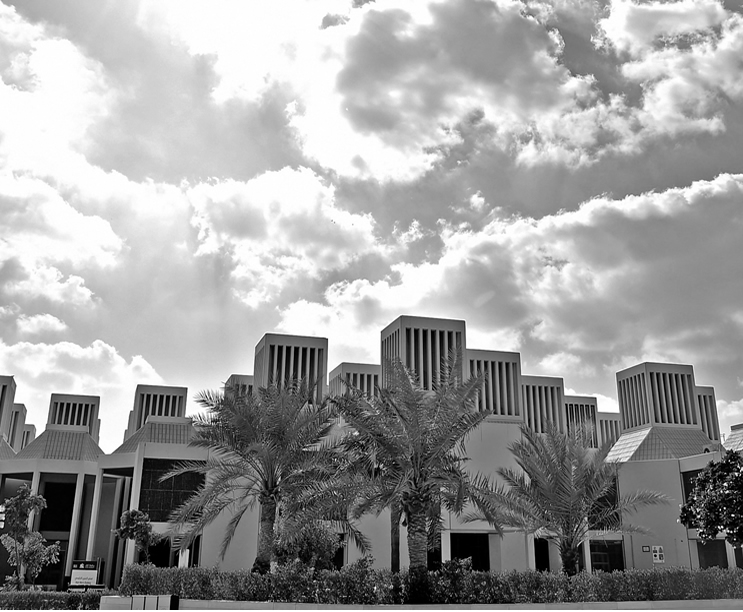
Technological Revitalization
Qatar University, a beacon of higher education since 1973, partnered with Techno Q to undertake an ambitious project of upgrading classroom technologies aimed at refurbishing audiovisual systems across its sprawling campus. This case study outlines the strategic objectives, the implementation process, and the outcomes delivered by the Classroom Technologies project.
Set against the backdrop of West Bay, Doha, Qatar University has grown from its humble beginnings to become a regional academic titan, home to a diverse community of learners and educators. Recognizing the need for state-of-the-art educational facilities, the university embarked on a project that would propel its classrooms into the future with advanced audiovisual technology, designed to enrich both teaching and learning experiences.
- Subject: Qatar University
- Industry: Education
- Award Date: November 2007
- Completion Date: March 2008
- Role in Contract: Contractor
- Location: West Bay, Doha
- Techno Q Project Manager: Aftab Ahmed
- Client: Qatar University
The primary objective was to transform 100 classrooms, creating smart learning environments equipped with the latest AV technology. This would not only facilitate interactive curriculum delivery but also ensure that these advancements could be maintained efficiently through innovative remote monitoring and support systems.
Techno Q tackled the project by systematically upgrading each component within the classroom:
- Smart Rooms: Outfitting 76 classrooms with full AV systems, including ergonomic instructor stations with integrated tech controls using Crestron processors, AV switchers, and audio amplifiers.
- Live Support: Integration of IP Intercom units to maintain open communication lines between the instructor and the AV helpdesk.
- Multimedia Equipment: Installation of Panasonic multimedia projectors, motorized Draper screens, and loudspeakers to aid in immersive content delivery.
- Annotation Capabilities: Incorporating Wacom annotation screens for interactive elements.
- Connectivity and Switching: Robust system setup using Extron multimedia switchers.
- Video Conferencing: Thanks to Polycom technology, the space allows for global interaction.
Additionally, 25 rooms received standard upgrades with essential AV equipment.
Execution
Under the adept management of Aftab Ahmed, the project unfolded over five months. The key to streamlining this expansive undertaking was Creston RoomView software, which enabled remote operation across the 14-building campus. This system revolutionized the way tech support and troubleshooting were performed, thus significantly reducing downtime and increasing the efficiency of maintenance processes.
The upgrade has provided a variety of benefits:
- Interactive Learning: The new systems have elevated instruction, making it more engaging through dynamic, multimedia presentations.
- Inclusion of Modern Techniques: Students now experience cutting-edge teaching methodologies compatible with current global education standards.
- Efficient Maintenance: Automated systems allow for quick identification and resolution of technological issues, ensuring consistent availability of all AV resources.
- Faculty Empowerment: Professors have at their disposal intuitive tools for lesson presentation and content sharing, leading to enhanced pedagogical practices.
The successful implementation of the Classroom Technologies project signifies Qatar University’s continuous commitment to providing a fertile academic ecosystem that thrives on technological innovation and pedagogical excellence.
Qatar University’s Classroom Technologies project serves as a testament to how investment in technology can profoundly impact educational outcomes. The initiative has demonstrated that with careful planning, effective project management, and the integration of high-quality resources, educational institutions can significantly enhance the learning and teaching experience. Multi-faceted in its approach, the project has systematically reshaped the academic landscape of Qatar University, preparing it to meet the challenges and harness the opportunities of the 21st century.
WEILL CORNELL MEDICAL COLLEGE
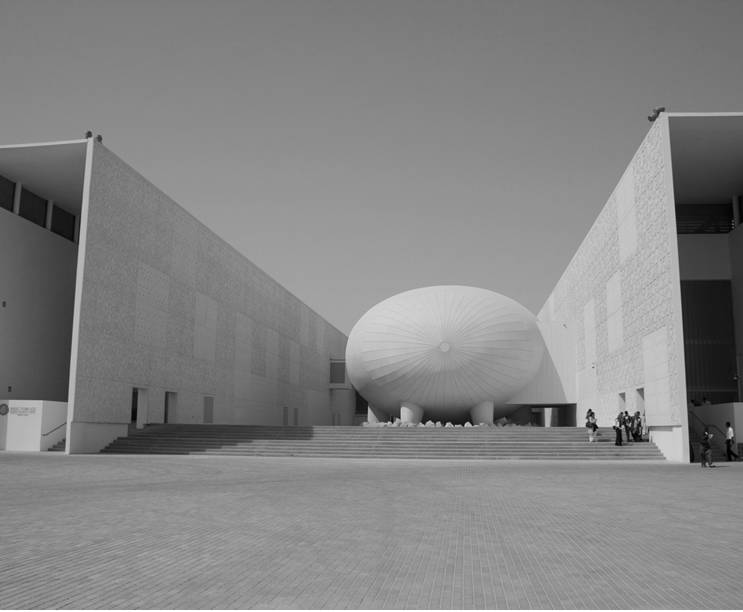
Advanced Audiovisual System
Weill Cornell Medical College (WCMC) embarked on a comprehensive upgrade of their educational facilities, incorporating state-of-the-art audiovisual (AV) technologies in 48 rooms and four lecture halls. This case study explores the objectives, challenges, and outcomes of integrating sophisticated AV equipment designed to enhance the learning experience for both instructors and students at WCMC.
WCMC aimed to achieve a seamless integration of multimedia projectors, projection screens, computer interfaces, document cameras, control systems, as well as video and audio conferencing systems. Key objectives included:
- Equipping educational spaces with advanced AV solutions to facilitate interactive learning and distance education.
- Implementing a system with preconfigured inputs/outputs to allow instant use without additional setup time.
- Minimizing on-site work through prepared interconnections and off-site programming.
The project was marked by its ambition to revolutionize the traditional educational environment:
- Industry: Education
- Award Date: June 2002
- Completion Date: August 2003
- Role in Contract: Subcontract
- Location: Doha, Qatar
- Client: Al Darwish Engineering / Contrack International JV
- Techno Q Project Manager: Abdulla Alansari
The intricate AV system was intended to be controlled effortlessly via touchscreens in each room. With the highest standard components chosen for optimal functionality, the system was engineered to exceed application expectations and adhere to stringent connectivity standards.
The complex nature of the AV system presented multiple challenges, notably:
- The necessity for a versatile system capable of supporting a diverse range of lectures and learning activities.
- The need for the AV system to be user-friendly, accommodating faculty members with varying degrees of technical expertise.
- The importance of minimizing disruption to the educational schedule during the installation process.
The approach for managing and planning this project was grounded on the principle of efficiency and minimal on-site interference. Strategies included:
- Procuring pre-made interconnections to expedite on-site installation.
- Off-site preparation and programming of rack equipment to streamline the installation process.
- Detailed scheduling and liaising with stakeholders to ensure smooth project progression without impacting academic programs.
The integration of the complex AV system at Weill Cornell Medical College was met with acclaim, offering high-quality and flexible teaching tools that include:
- A responsive control system allowing for spontaneous adjustments during lectures.
- High-definition audio and visual outputs ensuring clarity and engagement.
- Enablement of sophisticated video and audio conferencing for remote instruction and collaboration.
This pioneering approach not only enhanced the educational scope at WCMC but also established a benchmark for AV technologies in academic institutions.
The successful completion of the AV system at Weill Cornell Medical College reflects Techno Q’s competency in delivering a large-scale, high-impact AV integration project within an educational setting. Through meticulous planning, strategic management, and leveraging cutting-edge technology, the project stands as a testament to the potential of AV systems in enriching and modernizing academic experiences.
TEXAS A & M
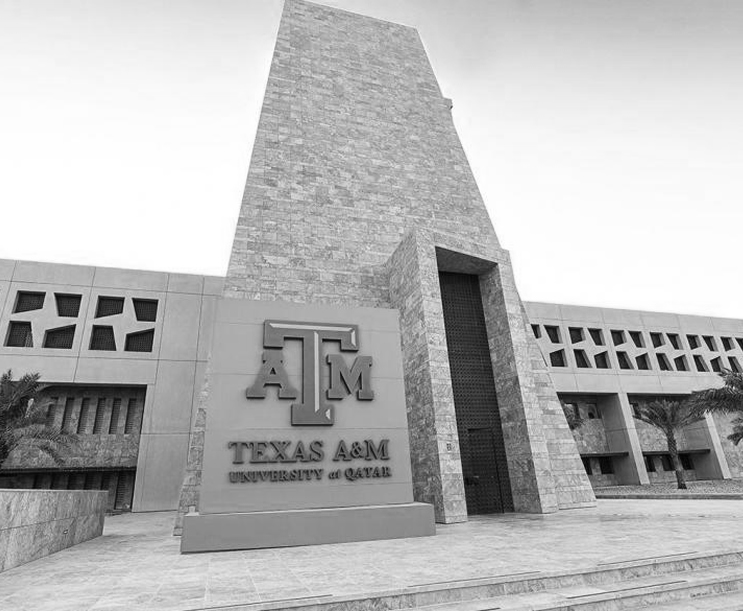
Audiovisual System Enhancement
Texas A&M University embarked on an ambitious project to overhaul the audiovisual (AV) systems in 58 classrooms and meeting rooms, including 3 lecture halls, within the Bridge Arts & Science building. The objective was to create an integrated, AV solution designed to facilitate a seamless teaching and learning experience.
Subject
- Institution: Texas A&M University
- Location: Doha, Qatar
- Industry: Education
Objectives
The key objectives of the installation of the audiovisual equipment included:
- Seamless Operation: To design an AV system that can be operated easily via touchscreens for immediate use in lectures or distance learning.
- High-Quality Components: To ensure the AV system is composed of high-standard components for optimal functionality.
- Efficient Project Management: To implement a project management plan that minimizes on-site work through the use of pre-made interconnections and off-site setup and programming.
Equipment Installed
- Multimedia Projectors
- Projection Screens
- Computer Interfaces
- Document Cameras
- Control Systems
- Video & Audio Conferencing Systems
- Assistive Listening System
The complexity of Texas A&M’s AV solution required meticulous design and implementation. The system was conceived to emphasize ease of operation, allowing instructors to swiftly adapt to the technology. Every detail, from input/output configurations to connectivity, was pre-planned to ensure a variety of applications could be supported.
Operating under the guidance of skilled project management, this endeavor followed an innovative approach involving the procurement of pre-made interconnections. Equipment setup and programming were conducted off-site by Techno Q’s project manager, Mr. Abdulla Alansari, and his team. This strategic initiative reduced the duration and complexity of on-site installation.
Roles and Responsibilities
- Awarded To: Techno Q (as a subcontractor)
- Project Management: Techno Q’s Project Manager – Abdulla Alansari
- Client: Contraco/Midmac JV (Dr. Sameer Banna)
Timeline
- Award Date: May 2003
- Completion Date: January 2004
The project’s successful completion within the specified timeframe reflects the efficacy of Techno Q’s off-site preparation methodology. Not only did the implemented systems enhance the educational prowess of Texas A&M, but the project itself stands as a testament to the potential of innovative project management and planning in the realm of AV system integration.
COLLEGE OF NORTH ATLANTIC QATAR
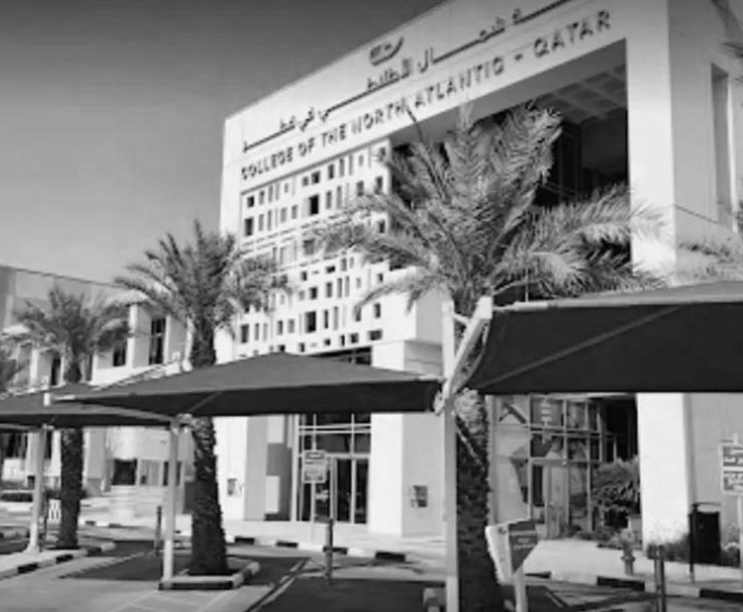
Enhancing the Learning Experience
The College of North Atlantic Qatar (CNA-Q) aimed to create a technologically advanced learning environment to cater to the dynamic needs of modern education. The institution embarked on a robust installation of comprehensive audiovisual systems across its facilities, cementing its reputation as a pioneering education center in Qatar. This case study examines the installation’s objectives, the audiovisual solutions implemented, and the outcomes achieved.
CNA-Q is committed to delivering an exceptional learning experience shaped by innovation and practical skill acquisition. Recognizing the importance of integrating cutting-edge technology into academic settings, CNA-Q sought to outfit its lecture halls, classrooms, and conference rooms with sophisticated audiovisual equipment to enhance teaching capabilities and learning outcomes.
The primary objective was to establish a cohesive and interactive audiovisual environment throughout the CNA-Q campus. The initiative aimed to:
- Deploy a range of multimedia technologies to support diverse teaching methods
- Facilitate seamless connectivity and ease of use for educators and students
- Adopt systems capable of adapting to future technological advancements
- Achieve high standards of application functionality and performance
To meet the set objectives, the following audiovisual equipment and systems were installed:
- Multimedia projectors for clear and vibrant visual presentations
- Electric projection screens enabling various viewing formats and sizes
- Routers and switchers for efficient signal distribution and management
- Computer interfaces to ensure compatibility with diverse digital sources
- Visualizers to display detailed objects and documents
- User-friendly control systems for centralized management of AV equipment
- Assistive listening systems to accommodate students with hearing disabilities
- High-quality loudspeakers and amplifiers for optimal audio dissemination
- Radio microphones offering flexibility and reducing lecture delivery constraints
- Video conferencing equipment for remote learning and global interaction
- Multimedia lecterns integrating various AV controls for presenters
The high standard design of the audiovisual system was curated by a specialized AV consultant following extensive product and application industry research.
Techno Q, under the project management of Colin James, functioned as the primary contractor for this extensive installation. The project, awarded in August 2004, was completed in November 2005. Techno Q’s involvement exemplified expertise in managing complex AV integrations tailored for educational settings.
Post-installation, CNA-Q experienced a transformation in its teaching and learning processes. Lecturers reported enhanced engagement and interaction with students. Students benefited from the assimilation of audiovisual aids in their coursework, showing improvement in comprehension and participation. The improved communication infrastructure facilitated both local and international collaboration, promoting CNA-Q’s vision of becoming a global education hub.
The integration of state-of-the-art AV systems significantly propelled CNA-Q towards fulfilling its mission to provide quality education through the use of advanced technologies. The enhanced audiovisual capabilities have not only enriched the curriculum delivery but also positioned CNA-Q as a leader in educational innovation in the region.
This case study illustrates how strategic investments in audiovisual technology can transform educational institutions like the College of North Atlantic Qatar. From facilitating engaging lecturers to fostering global connections, the audiovisual advancements fostered an environment of excellence and innovation — laying a solid foundation for future technological ventures and educational enrichment.
